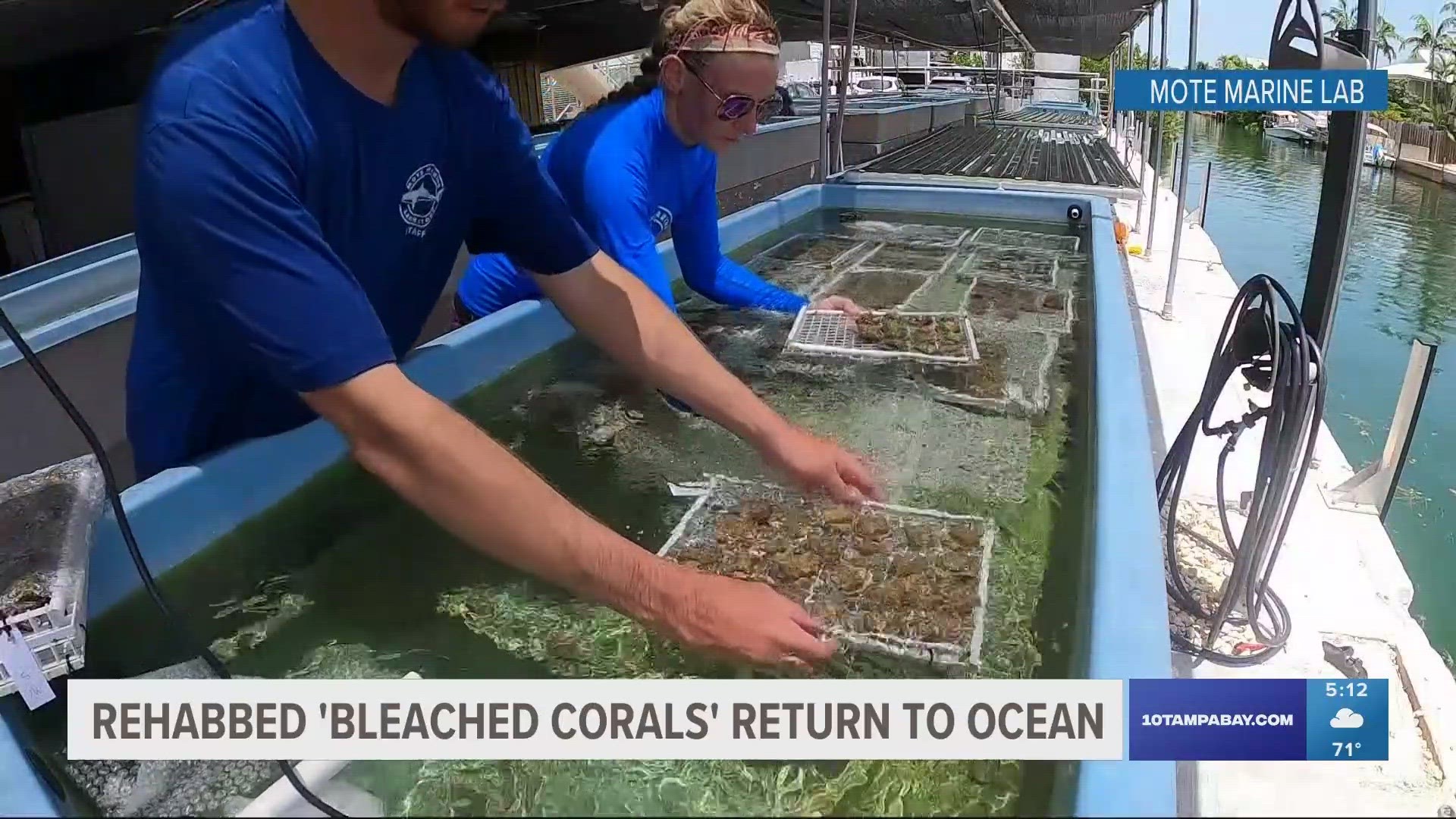SARASOTA, Fla. — After exposure to extreme temperatures, thousands of rescued and rehabilitated corals are going back home to the ocean. The multi-step process has already started to take shape.
During the summer, researchers across the state worked on recovering thousands of corals from nurseries in the waters of the Florida Keys. The corals, which were normally of an iridescent orange hue, had been bleached white by the dangerous heat that made the waters hot, essentially cooking them
"It was definitely, definitely alarming how early on and fast those water temperatures rose over the summer back and in early May, June and July," Dr. Jason Spadaro said.
Spadaro is the manager of the Coral Reef Restoration Research Program at Mote Marine Lab and Aquarium.
"Many of those corals were coming in stressed in and dying," Spadaro said.
Teams spent weeks bringing in corals from four different offshore nurseries onto land-based locations including at Mote's Aquaculture Research Park in Sarasota.
Several months after the rescue and recovery operation, researchers have recorded positive developments and attained a milestone in their project.
"We're thrilled to report that many many of them recovered and are ready to go back into the water. We iteratively moved sets of test corals out into the offshore nurseries and then watched them for a week or two," he said.
Over the past four weeks, scientists have reintroduced the now healthy corals into much cooler ocean waters. Spadaro said the temperature threshold was for the water to stay under 88 degrees Fahrenheit over an extended period. The researchers also spent time studying the corals as they readjusted to the somewhat different environment and observed them for any changes.
"There were different responses with different genotypes so we do see some trait-based resilience in our coral populations both on the reef and in the nurseries. We're sneaking up on 7000 colonies that have been put back offshore" Spadaro explained.
Mote Marine Lab is working with regulatory agencies like Florida Fish and Wildlife and NOAA which have clear criteria on how to reestablish the nurseries, including a 30-day window for certification by a veterinarian.
Spadaro said there is a feeling of relief among the researchers involved in the project that they were able to move swiftly to mitigate what could have been a devastating blow to the ecology.
"Florida's coral reef is our first line of defense in the most effective line of defense against things like storm surge and hurricanes doing damage to the shoreline structure. Losing that resource losing that critical, absolutely invaluable, natural resource would be devastating to the local and regional economy," Spadaro said.
The scientists said during their research, the corals showed signs of resiliency and they're working on increasing the genetic diversity of the corals to help them stay resistant to bleaching.

